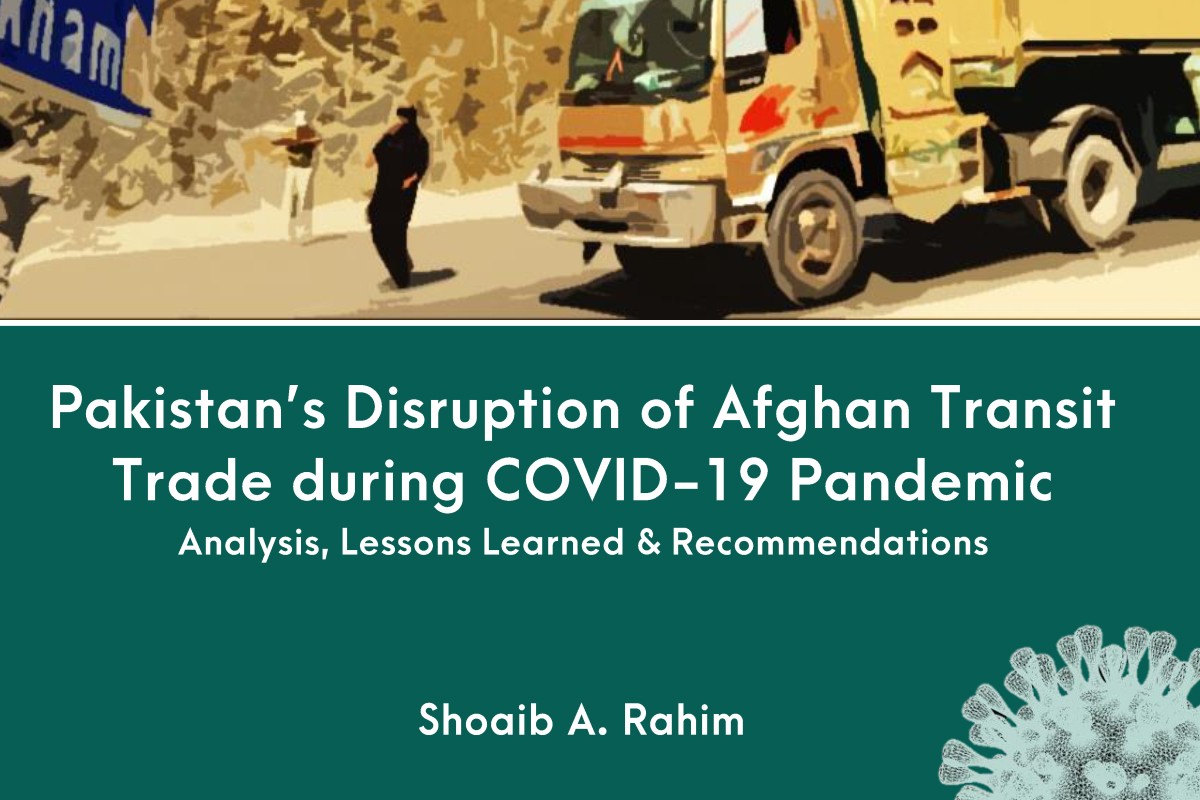Trade plays an important role in the economic growth of a country. Trade routes that are shorter, reliable, easy, and cost-efficient can offer significant economic gains. This issue becomes even more important in the case of landlocked countries where geopolitics comes into play. This can be seen in the case of landlocked Afghanistan which continues to pay the price of its disadvantaged geographic location. The country has relied on Pakistan for a transit route in the light of international conventions and bilateral agreements like the Afghan Transit Trade Agreement (ATTA) and the Afghanistan Pakistan Transit Trade Agreement (APTTA). However, the legal frameworks and consequent arrangements have not helped in preventing political exploitation by disrupting trade whenever exerting pressure was intended. The most recent trade disruption incident took place when Pakistan closed all its crossing points along Durand Line using COVID- 19 as a pretext in March 2020. The port authorities continued to use different delay tactics to hold the Afghan transit trade to earn demurrage fees at the port while other authorities and security agencies exploited the situation to earn extortion fees as the Pakistani government remained a silent spectator. As a result, around eight thousand Afghanistan-bound containers remained stranded at the port and elsewhere in Pakistan causing serious damage to the goods, losses to traders, and price hikes due to supply shortages. As of July 2020, there are no signs of normalcy in the transit trade via Pakistan. The role of the Afghan government as a whole and the Afghanistan embassy in Islamabad, in particular, has come under serious criticism by traders. There are documents, news reports, newspaper articles, and other evidence which show that both Afghan and Pakistani governments have remained silent spectators while Afghan traders were suffering. The disappointing part is that it was mainly Pakistani newspapers raising these issues while Afghan print and electronic media did not give it due attention. There is a need to assess the extent of losses, grievances of traders, violation of agreements, and its implications on the Afghan economy.
| Language | English |
|---|---|
| Date of Publication | 2021-05-25 |
| Total Pages | 58 |
| Attachment | Download |

